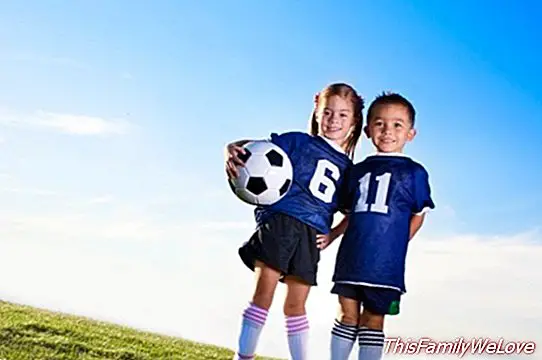Keys to children's sport

The sports benefits They are unquestionable to all ages, as long as they are adapted to the needs and capabilities of each person. Have a active life, along with a healthy diet, it is essential to be happy. That is why it is so important that children and teenagers practice sports, and parents have a lot to do with it.
The Physical Activity Group of the Spanish Association of Pediatrics recalls that physical inactivity "poses a significant risk to the physical and mental health of any person." Thus, especially in young people, the regular practice of physical exercise "It helps in the prevention and treatment of obesity, cardiovascular diseases, psychological alterations, bone demineralization and some cancers."
But physical activity is not only the responsibility of children and adolescents, but parents have a lot to do. Therefore, this group of the Spanish Pediatric Association has developed the decalogue for parents on the physical activity of children and adolescents with several keys that we must not forget.
Decalogue for parents about children's sports
1. Recommendations: How much sport should be done? The first key of this decalogue reminds us that the realization of moderate physical activity or not vigorous should be for a minimum of 60 minutes a day that can be divided into several sessions. The sport should be mostly aerobic, interspersed with vigorous activities for muscle and bone strengthening three times a week.
2. No sedentary lifestyle: This point is key: any type of daily activity is better than the sedentary option. Therefore, these pediatricians recommend walking, using the bicycle or climbing the stairs and limit the time that children watch television or play with electronic devices.
3. Fun and game: The best thing is for children and young people to practice sports while having fun and playing. Do not encourage competition but companionship: group activities are preferable, fun and outdoors.
4. Security: Of course, keep in mind the safety when carrying out physical exercise. Make sure that the environment (playground, for example) is adequate and without dangers, and encourages your children to respect the safety rules of each sport (the helmet with the bike, for example).
5. In any health condition: physical activity can be adapted to any situation of the person who practices it and, in fact, it is beneficial in almost all cases. These pediatricians remember that, in addition, overall improves the health status and the evolution of children with chronic disease and disability, so do not be scared if your child has any disease and let him play sports.
6. Habits: It is true, sometimes we are too lazy to go out and do sports (especially if it's very cold or very hot). But the practice of physical exercise must be a healthy habit from childhood, and parents have a lot to do with this. If we make sport a habit, it will be easier to keep it in time, missing even when you can not practice.
7. Priority activity: Sport is an important activity in the day to day of the child. Therefore, incorporate it into the daily activities of your child, as with extracurricular activities with which, in addition, you are investing in their health.
8. Give an example: It is essential that you give your children an example. Do physical exercise and plan family activities (such as running, or excursions) if you want your child to be active.
9. Hydration: Of course, take care of your health. Make sure your child drinks liquid, especially when the activity is intense and the atmosphere is hot.
10. Food: varied and balanced, this must be the daily diet of your family and, by puppet, of your children. It is the fundamental pillar on which the development of a healthy life is based.
Angela R. Bonachera




